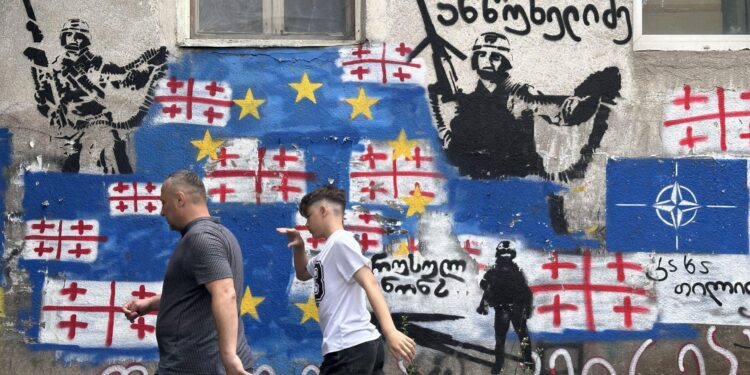Repression in Georgia is accelerating at an alarming pace, raising urgent concerns across Europe. Recent developments signal a sharp crackdown on political dissent and civil liberties, prompting calls for immediate and decisive action from European institutions and Germany. As Georgia’s democratic backsliding intensifies, experts warn that hesitation could undermine regional stability and the broader European commitment to human rights. This article examines the rapid escalation of repression in Georgia and explores why Europe and Germany must respond without delay.
Escalating Crackdown on Civil Society Threatens Georgian Democracy
Recent developments in Georgia reveal a rapidly intensifying campaign against independent civil society organizations, triggering alarms about the future of democratic governance in the country. Authorities have increasingly employed legal and administrative pressures to silence dissenting voices, targeting NGOs, media outlets, and activists with investigations, restrictive laws, and public smear campaigns. This systematic crackdown jeopardizes the plurality of voices essential for a healthy democracy and undermines the checks and balances critical for transparent governance.
European institutions and Germany, in particular, face growing calls to intervene decisively. Without swift and concrete international support, Georgian civil society risks being dismantled, which could destabilize the wider region. Key areas requiring immediate attention include:
- Ensuring protection for civil society actors against arbitrary state harassment
- Introducing conditionality in EU-Georgian partnerships tied to democratic standards
- Facilitating independent media freedom through funding and diplomatic pressure
- Monitoring judicial independence to prevent politically motivated prosecutions
| Recent Actions | Impact | Recommended Response |
|---|---|---|
| New NGO registration laws | Restricts foreign funding, forcing closures | EU to demand legislative rollback |
| Targeted media raids | Chilling effect on investigative journalism | International monitoring and sanctions |
| Judicial harassment of activists | Erodes trust in rule of law | Support for independent judiciary reform |
European Union and Germany Face Urgent Imperative to Strengthen Support
As Georgia experiences a rapid escalation in political repression, the European Union and Germany find themselves at a critical crossroads. Both actors have long championed democratic values and the rule of law in the region, yet the current developments demand swifter and more decisive intervention. Delays risk not only the erosion of fundamental freedoms but also destabilization that could ripple beyond Georgia’s borders. The urgency to recalibrate existing support mechanisms has never been more palpable, with civil society groups and opposition leaders calling for enhanced protection and solidarity.
To effectively counter these challenges, key measures should include:
- Increased diplomatic pressure on Georgian authorities to halt repressive actions and respect human rights.
- Targeted sanctions aimed at individuals and institutions responsible for undermining democracy.
- Expanded financial and technical support to independent media, NGOs, and judicial reforms.
- Regular monitoring and transparent reporting mechanisms to track the human rights situation comprehensively.
| Action | Responsible Body | Expected Impact |
|---|---|---|
| Diplomatic Engagement | EU Foreign Affairs Council | De-escalation of tensions |
| Sanctions Enforcement | German Federal Government | Accountability for abusers |
| Support to Civil Society | European Commission | Strengthened democratic resilience |
| Monitoring Programs | Human Rights Watch & Partners | Improved transparency |
Targeted Sanctions and Diplomatic Pressure Critical to Halt Repression
As the clampdown on civil liberties intensifies in Georgia, it is imperative that European actors, particularly Germany, escalate their response through targeted sanctions aimed directly at those responsible for human rights violations. Broad-based economic penalties risk punishing the general population, whereas tailored measures-such as visa bans, asset freezes, and restrictions on key government officials-can place significant pressure on the ruling elite without collateral damage. Such calibrated actions send a clear message that repression will not be tolerated and that European values of democracy and rule of law remain non-negotiable.
Alongside sanctions, sustained diplomatic engagement must accompany any punitive measures to encourage a genuine dialogue between the Georgian authorities and opposition groups. This includes:
- Regular high-level visits to emphasize European commitment
- Support for independent media and civil society organizations
- Facilitation of international mediation efforts to de-escalate tensions
Maintaining diplomatic channels is crucial to avoid isolation and to provide a platform for reform, making the combination of pressure and dialogue an effective strategy to halt ongoing repression.
| Sanction Type | Target | Expected Impact |
|---|---|---|
| Visa Ban | Senior Officials | Restricted Travel |
| Asset Freeze | Government Leaders | Financial Pressure |
| Export Controls | Security Apparatus | Limited Repression Tools |
Wrapping Up
As repression in Georgia accelerates, the window for meaningful international intervention narrows. Europe and Germany, as key partners and advocates for democracy in the region, face mounting pressure to respond decisively. The stakes are high: failure to act could not only undermine Georgia’s fragile democratic gains but also embolden authoritarian tendencies across the wider region. Timely and coordinated support from Europe and Germany is essential to uphold democratic norms and protect human rights before it is too late.














